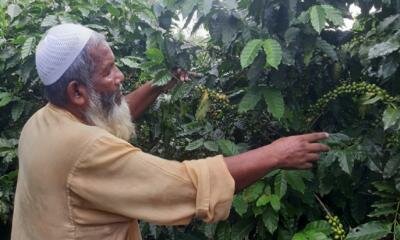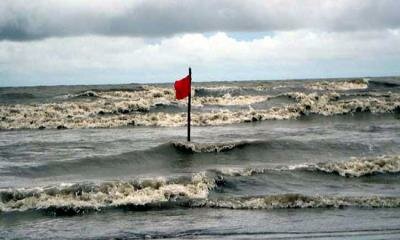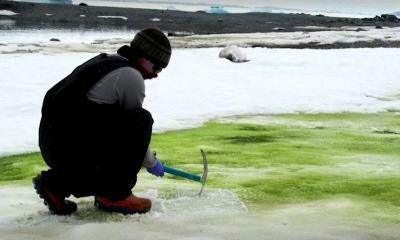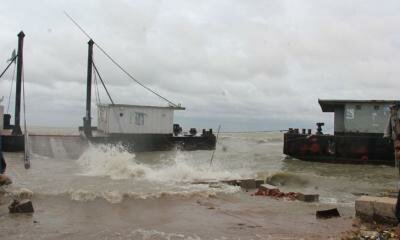Morning glory returns to Cox’s Bazar beach
Cox Gazette | Online Desk April 1, 2020, 08:36 PM

All it took was a mere few weeks for it to come back to the vast stretch of Cox's Bazar sea beach.
With a ban on tourist movement in place, sagarlata, also known as beach morning glory -- a key component of the beach ecology -- which had disappeared from parts of Cox's Bazar due to unbridled movement of tourists and construction of structures along the beach, started to grow once again.
The 120-km stretch of the beach laid empty with a tourist ban in place from March 18, making room for the vine to grow rapidly in absence of human activities and reappear at Kolatali, Sugandha and Dorianagar -- three important beach areas.
Also known as railroad vine, sagarlata acts as a natural barrier to waves, protecting seashores from erosion.
Ahmed Gias, a resident of Dorianagar who is working to safeguard the beach ecology, told that sagarlata is important to dune erosion control and acts as a shield against natural calamities.
Hotels which were built occupying many dunes in the area destroyed roots of the vine, he said, adding that before no trace of sagarlata could be seen anywhere in Sugandha, Kolatali and Laboni points.
Ibarhim Khalil Mamun, chief executive of Youth Environment Society, said the sprawling vine sprouted at the beach in absence of human activity. "It grows where humans don't tread," he said. The government must take steps to contain movement on the beach, allowing it to breathe.
Dr Kamal Hossen, professor of institute of forestry and environmental science at Chattogram University, said, "It acts as soil binder, helps the seashore fight against strong waves, plays a role as natural shield against erosions and stabilises the beach.".
He said due to human disturbance, the plant disappeared from most part of the beach. "The current shutdown created a new hope for the plant. Authorities must think about how to nurture the plant for the overall betterment of environment," Dr Hossen added.
More News from Environment
-

Internet access will no longer be blocked in Ukraine says Elon Musk
-

No possibility of US sanctions expansion: Shahriar
-

UNHCR and IOM Condemn Deadly Attack on Displacement Site in DR Congo
-

Teleworking during COVID: Risks, benefits and steps to a ‘new normal’
-

Army officer among 4 dead in Bandarban gunfight
-

Health tech startup Best Aid raises investment from YY ventures.
-

DiCaprio praises Bangladesh on new marine protected area around St Martin`s
-

Guterres calls for end to conflict in Ethiopia after deadly attacks
-

Rohingya refugee camps hit by second fire in 10 days ,Leaving thousands homeless
-

BNCA begins a shadow investigation into elephant killing in Cox’s Bazar
-

One more elephant found dead in Cox`s Bazar, death toll 7 in 11 days
-

Shahriar Nisan joins BDMORNING as Acting Editor
-

Two more Rohingya men arrested over Mohib Ullah killing
-

One arrested over Rohingya leader Muhib Ullah killing.
-

Hundred Plus UN Job Openings in a glance
-

Youth empowerment for tourism’s future ,The eight winning solutions
-

UN Refugee agency condemns killing of Rohingya refugee leader
-

Thousands of `Rohingya Refugees` pay their last respects to Mohib Ullah
-

Rohingya Leader Mohibullah Killed in Cox`s Bazar camp
-

Internet connection cuts off in more than ` 25 `townships in northwestern Myanmar









Write Your Opinion :